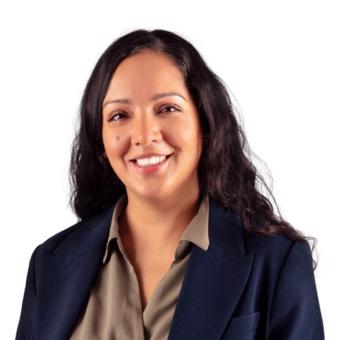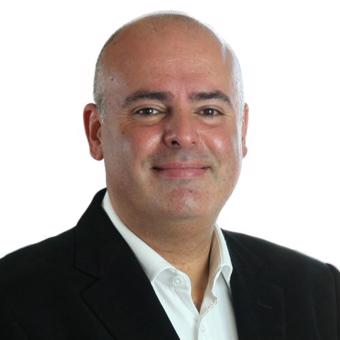BCL’s In-House Managing Director Mark Levine speaks to newly qualified solicitor Zaynab Rahman about qualifying in-house at the global mining giant Rio Tinto.
The Solicitors Qualifying Examination (SQE) is the new centralised way to qualify as a solicitor in England and Wales. It will eventually replace the Legal Practice Course (LPC) route to practice.
As well as the exams there is a need to complete Qualifying Work Experience, which can be completed by working alongside a SRA-regulated solicitor or Compliance Officer for Legal Practice.
Getting this experience via a law firm will always be the first thing that springs to mind. However, you can also do this whilst working in-house or in the public sector.
Mark Levine: When did you decide you wanted to be a lawyer?
Zaynab Rahman: I studied Law at university and always enjoyed the fact that the legal field sits at the intersection of every industry. Whether it's tech, energy, finance, or healthcare, legal work plays a central role in shaping decisions and managing risks.
I’ve always been drawn to work that is intellectually engaging and practically impactful, and the legal profession has always offered that.
ML: Was qualifying in-house, via SQE your first choice?
ZR: I was graduating university when the SQE was first being introduced, so I definitely did consider it as an option, but I initially intended to pursue the LPC and traditional private practice training contract as my first option.
My first job after graduating was a paralegal role in-house at an energy company, which I really enjoyed. I enjoyed being part of a business and collaborating with different teams alongside legal, and really developing a deeper understanding about the particular industry I was working in.
I applied for a training contract through Flex Legal, who facilitated in-house training contracts alongside studying and sitting for the SQE.
Because I really enjoyed working in-house, I began to look for in-house training opportunities, and that is when I learned about Flex Legal and their offering of in-house training contracts.
ML: How did you learn about the SQE route?
ZR: I learned about the SQE route during university. Our lecturers explained this new route to qualification and the introduction of “Qualifying Work Experience” in place of the traditional structure of a private practice training contract. This appealed to me because it opened the doors for alternative routes to qualification.
ML: How did you get the opportunity to to start the SQE process?
ZR: I applied for a training contract through Flex Legal, who facilitated in-house training contracts alongside studying and sitting for the SQE. The training structure of completing my training contract and sitting the exams during my training made sense to me because I thought that the practical aspect of legal work would help me during my exams.
ML: Can you tell us about your training experience?
ZR: I had a great training experience at a fantastic company – Rio Tinto, a multinational mining company. I had exposure to a lot of really interesting work from M&A to Employment, to Finance and so on, which gave me a really dynamic training experience. My company also facilitated a six-month secondment in private practice for me at Baker McKenzie, which allowed me to explore and understand the difference between in-house and private practice training.
Preparing for the SQE is all about consistency, doing one hour of practice a day over months is better than trying to cram in hours of revision a week before the exams.
ML: From what you can tell, how does training in-house differ from doing so in private practice?
ZR: As an in-house trainee you are a lot more of a generalist lawyer and, even though you could be doing six months in a particular seat, there are always opportunities to work across practice areas and work on multiple different projects simultaneously. For example, I did the final seat of my training contract in the Corporate legal team but I was also working closely with Treasury on some finance matters.
ML: The exams are notoriously hard. How did you get through it?
ZR: Being disciplined and dedicating a good amount of time to studying, whether it be after work or on the weekends. Preparing for the SQE is all about consistency, doing one hour of practice a day over months is better than trying to cram in hours of revision a week before the exams. I prepared for the SQE using BARBRI and I followed their personal study plan, which I found helped me in managing my studying alongside work.
ML: What tips do you have for aspiring lawyers that might want to follow in your footsteps?
ZR: I would say do as much research as you can into different routes to qualifying and build connections with people who have gone down those routes, whether it be through platforms like LinkedIn or attending in-person legal events and networking. Reaching out to professionals directly may open the door to opportunities you never knew existed.
One key area is addressing the financial and social barriers that can make it difficult for talented individuals from underrepresented backgrounds to enter and thrive in law.
ML: Is there anything else you think the legal profession needs to consider to “open the doors” even more?
ZR: The legal profession has made progress in improving access and diversity, but there’s still more to do. I think one key area is addressing the financial and social barriers that can make it difficult for talented individuals from underrepresented backgrounds to enter and thrive in law.
That includes things like removing unpaid internships, increasing access to mentoring, and reducing the cost of legal education.
ML: What are your aspirations for the next few years?
ZR: As I grow into a lawyer, I do want to pursue mentoring opportunities to open the doors for aspiring solicitors to enter into the legal profession and work with initiatives that emphasise social mobility within law. I’m aiming to step into my role as a lawyer with greater confidence and a stronger sense of ownership over the advice I provide.
Connect
Connect with Zaynab Rahman via LinkedIn








